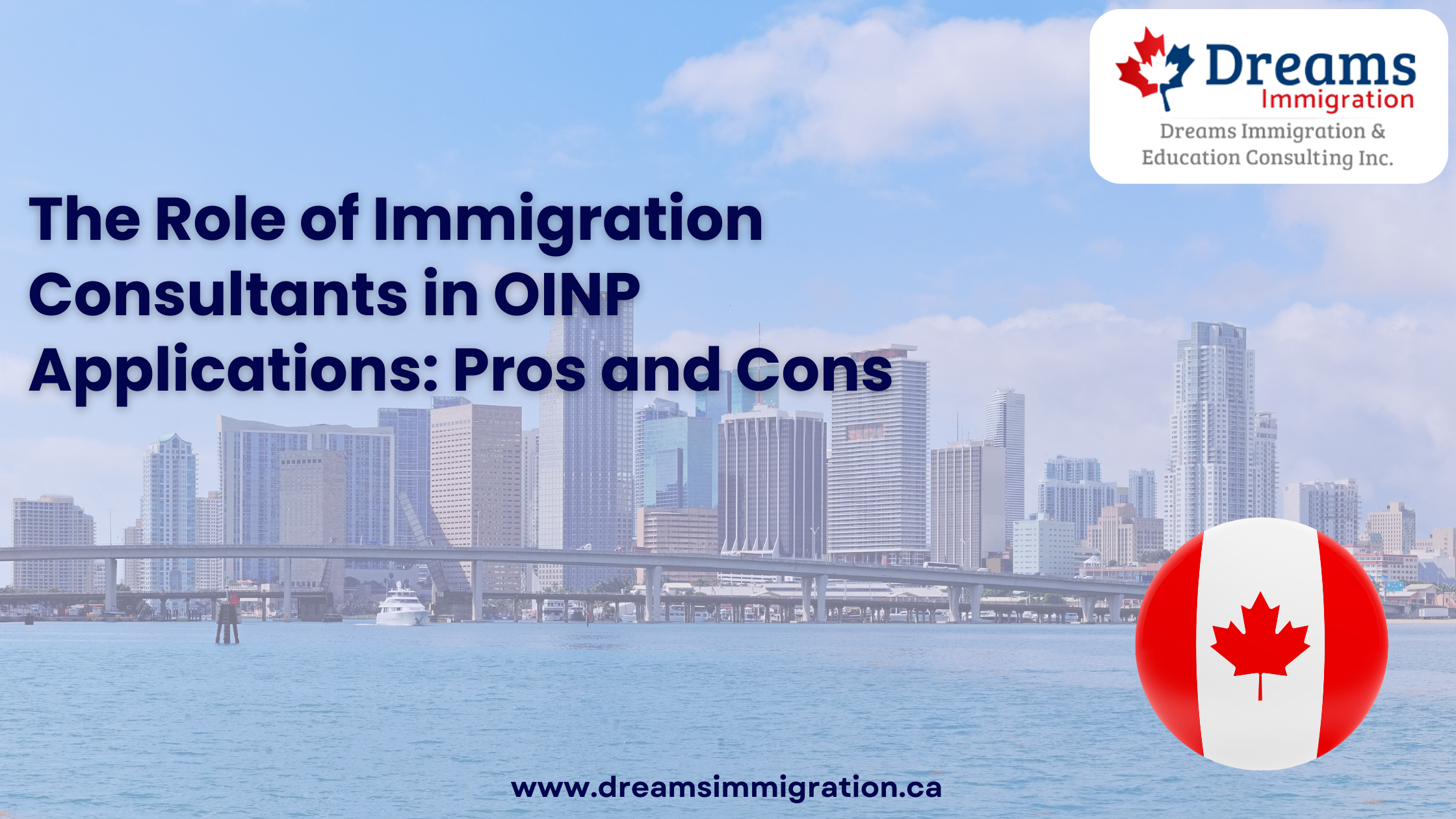Introduction:
The Ontario Immigrant Nominee Program (OINP) offers a pathway for skilled workers, graduates, and entrepreneurs to immigrate to Ontario, Canada. Navigating the complexities of the OINP application process can be challenging, prompting many applicants to seek assistance from immigration consultants. This article delves into the advantages and disadvantages of utilizing immigration consultants for OINP applications.
Pros of Using Immigration Consultants for OINP Applications:
1. Expertise and Knowledge:
Immigration consultants possess in-depth knowledge of the OINP requirements, procedures, and updates. Their experience can help applicants understand complex eligibility criteria, documentation, and submission guidelines.
2. Personalized Guidance:
Consultants provide personalized assistance tailored to an applicant's specific situation. They can assess an applicant's qualifications and recommend the most suitable OINP stream, increasing the chances of a successful application.
3. Application Preparation:
Consultants assist in compiling and organizing the required documents, reducing the likelihood of errors or omissions. Thorough documentation enhances the credibility of an application and expedites the review process.
4. Mitigation of Delays:
Consultants help applicants navigate potential delays caused by missing or incorrect documentation. Their expertise can minimize processing time and optimize the application timeline.
5. Communication Facilitation:
Consultants can communicate with government authorities on behalf of applicants, addressing inquiries and providing additional information, thereby streamlining the communication process.
Cons of Using Immigration Consultants for OINP Applications:
1. Cost:
Hiring an immigration consultant involves fees, which can add to the overall expenses of the immigration process. Applicants should weigh the cost against the potential benefits before making a decision.
2. Fraudulent Practices:
Not all immigration consultants are reputable. Some applicants have fallen victim to fraudulent practices, including false promises and unauthorized representation. Researching and selecting a credible consultant is essential.
3. DIY Feasibility:
Some OINP applicants, particularly those with a straightforward profile and a clear understanding of the application process, may find it feasible to complete the process independently, saving on consultant fees.
4. Over-Reliance:
Applicants who overly rely on immigration consultants may miss out on the opportunity to understand the application process firsthand, limiting their engagement and control over their immigration journey.
5. Changing Policies:
Immigration policies and regulations can change over time. Depending solely on a consultant's advice might lead to outdated or incorrect information, affecting the application's success.
Conclusion:
Immigration consultants can play a valuable role in assisting applicants with their OINP submissions, providing expertise, guidance, and support throughout the process. However, applicants should carefully evaluate the pros and cons, considering factors such as cost, complexity of their case, and consultant credibility. Ultimately, the decision to use an immigration consultant for OINP applications should be based on individual circumstances and preferences.


